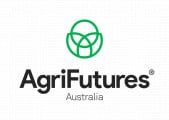AgriFutures Australia

Farmers can earn money by storing carbon in their soils, but there is an opportunity to work together to develop projects and bring them to market successfully. Small properties alone are unlikely to have the critical mass of carbon needed to compete in global carbon markets and farmers may lack the knowledge, skills and tools to develop projects by themselves. By working together, farmers are also better placed to demonstrate a range of other landscape-scale benefits that come from managing their land in this sustainable way - for native plants and animals, water quality and local communities. This project tests whether working together on soil carbon could be easier if farmers set up a cooperative, or “co-op”, like they do when selling milk or wheat. This kind of co-op might lower their costs, give them more bargaining power and also make it easier for them to measure the impacts on biodiversity or water quality at a variety of scales, ranging from the paddock scale to catchment or landscape scales. It’s important that these measurements are done properly and that any new business models share the risks and rewards fairly between farmers and their business partners.

-crop-850x675.png)
Have questions?
Find answers to our most frequently asked questions on research projects, commercial opportunities, organisations and more.
Still have questions or have feedback on the site? Please get in touch by completing our enquiry form.